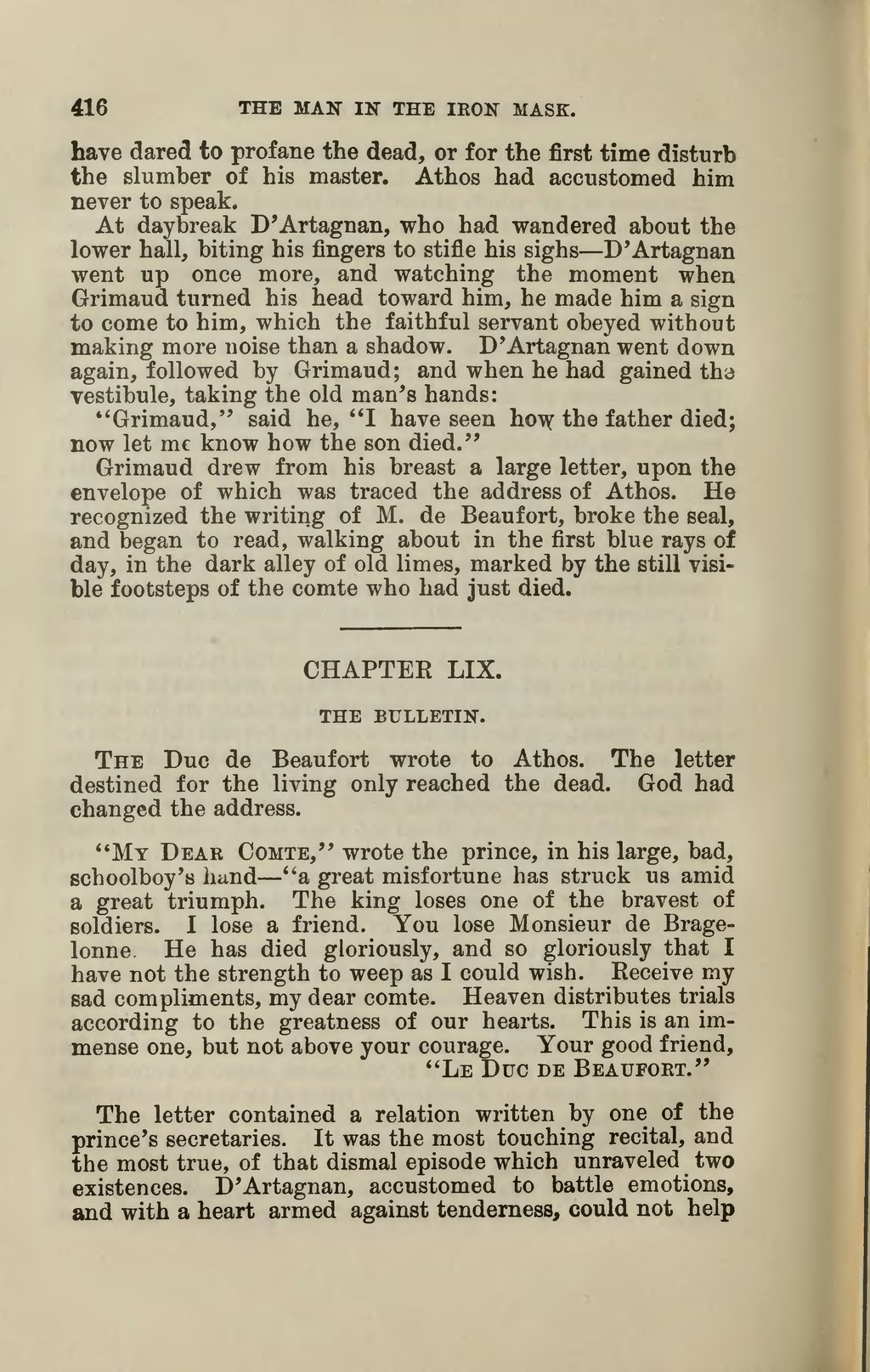have dared to profane the dead, or for the first time disturb the slumber of his master. Athos had accustomed him never to speak.
At daybreak D'Artagnan, who had wandered about the lower hall, biting his fingers to stifle his sighs — D'Artagnan went up once more, and watching the moment when Grimaud turned his head toward him, he made him a sign to come to him, which the faithful servant obeyed without making more noise than a shadow. D'Artagnan went down again, followed by Grimaud; and when he had gained the vestibule, taking the old man's hands:
"Grimaud," said he, "I have seen how the father died; now let me know how the son died."
Grimaud drew from his breast a large letter, upon the envelope of which was traced the address of Athos. He recognized the writing of M. de Beaufort, broke the seal, and began to read, walking about in the first blue rays of day, in the dark alley of old limes, marked by the still visible footsteps of the comte who had just died.
CHAPTER LIX.
THE BULLETIN.
The Due de Beaufort wrote to Athos. The letter destined for the living only reached the dead. God had changed the address.
"My Dear Comte," wrote the prince, in his large, bad, schoolboy's hand — "a great misfortune has struck us amid a great triumph. The king loses one of the bravest of soldiers. I lose a friend. You lose Monsieur de Bragelonne. He has died gloriously, and so gloriously that I have not the strength to weep as I could wish. Receive my sad compliments, my dear comte. Heaven distributes trials according to the greatness of our hearts. This is an immense one, but not above your courage. Your good friend,
The letter contained a relation written by one of the prince's secretaries. It was the most touching recital, and the most true, of that dismal episode which unraveled two existences. D'Artagnan, accustomed to battle emotions, and with a heart armed against tenderness, could not help
